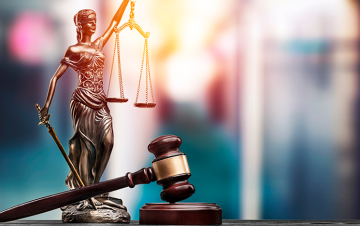Lawyer with 15 years of legal experience, specialization: family and civil law, inheritance, contract law, criminal cases, administrative cases, cases involving foreigners, migration law
In Ukraine's judicial system, appeal and cassation proceedings play a key role in ensuring a fair trial and protecting the rights of citizens. These procedures provide an opportunity to appeal against decisions of lower courts and check their compliance with the law and justice. Let's look at the main aspects of appeal and cassation proceedings in Ukraine.
Appellate proceedings:
The appeal procedure: After the first instance court has rendered a decision, the parties have the right to file an appeal with the appellate court within the time limit established by law. The appellate court checks the correctness of the application of the law and the circumstances of the case, reviews the case and may make appropriate changes to the decision of the first instance.
Powers of the parties: The parties to a case may present their evidence and arguments before the court of appeal, as well as use the services of a lawyer to protect their rights and interests.
Decision of the court of appeal: After reviewing the case, the appellate court may uphold the verdict, reverse it in part or in full, or issue a new decision in accordance with the law and the circumstances of the case.
Cassation proceedings:
Filing a cassation appeal: After the verdict of the appellate court, the parties may file a cassation appeal to a higher specialised court or the Supreme Court of Ukraine on certain issues established by law.
Powers of the cassation court: The cassation court checks the correct application of the law and compliance with the procedures in the previous court instances. It can confirm a verdict, cancel it or define new legal provisions.
The role of a lawyer in appeal and cassation proceedings
In appeal and cassation proceedings, a lawyer plays an integral role in ensuring a fair trial and protecting the rights of citizens. Here are the functions and responsibilities of a lawyer in these procedures:
Representation of the client's interests: An attorney-at-law is a representative of his or her client before an appeal or cassation court. He or she defends the client's rights and interests, ensuring their proper protection in the court process.
Preparation of an appeal or cassation appeal: An attorney-at-law has the right to prepare appeals or cassation appeals and submit them to the relevant courts. He or she analyses the circumstances of the case, establishes legal arguments and arguments that support the position of his or her client.
Presenting arguments in court: During the hearings of the court of appeal or cassation, the lawyer presents his arguments and evidence aimed at convincing the court of the correctness of his client's position. They engage in an open dialogue with the other parties and the court in order to reach a fair decision.
Assistance in formulating questions and arguments: The lawyer provides legal advice to the client on formulating questions and arguments that can be used in the trial. He or she helps the client to understand the legal aspects of the case and make informed decisions.
Representation of interests during negotiations: in addition, a lawyer can participate in out-of-court procedures, such as: defense in court, negotiations and mediation, analysis, legal proceedings, in order to reach an agreement between the parties or resolve a dispute without a trial.
The role of an advocate in appeal and cassation proceedings is to provide legal support and defence to the client, as well as to fulfil professional duties to the court and society.
Appellate and cassation proceedings in Ukraine provide an opportunity to review a case and protect the rights of citizens in the event of an incorrect or unfair decision by lower courts. Careful adherence to the procedures and legal norms in these processes is an important factor in ensuring justice and the rule of law.
































